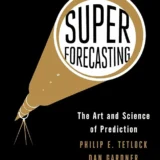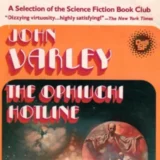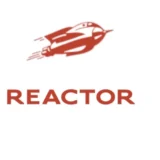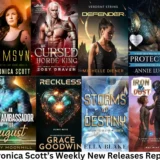
OBIR: Occasional Biased and Ignorant Reviews reflecting this reader’s opinion.
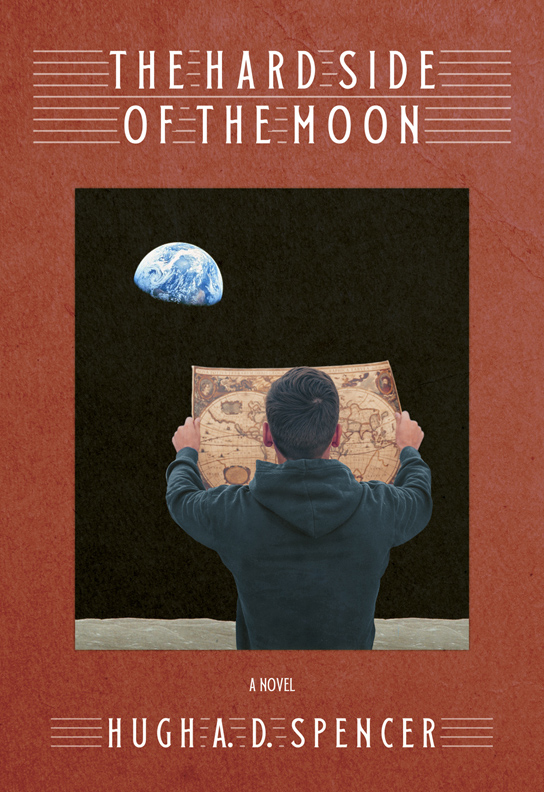
The Hard Side of the Moon – by Hugh A.D. Spencer
Published by Brain lag Publishing, Milton, Ontario, Canada, 2021.
Cover art – by Catherine Fitzsimmons
Premise:
Who knew living in small-town Blinn in 1970s Alberta could be so terrifyingly normal? So, too, living on the Moon.
Review:
This novel is about me. Naturally, that makes it easy for me to identify with the protagonist, Matthew. He’s maybe a few years younger, but we graduated High School roughly around the same time. Like him, I was into Famous Monsters of Filmland, Carl Capek, Magnus: Robot Fighter comics, SF films and literature in general, and being an impure virgin. I can’t say not for lack of trying, but I can truthfully say not for lack of wishful thinking. In short, a member of the “Monster Kid” generation. As was, I suspect, the author, drawing on his own life experience.
I’m tempted to make comparisons with Philip K. Dick’s Confessions of a Crap Artist, but its been so long since I read that non-SF novel I can’t remember a darn thing about it, other than it being about growing up as a nerd in “normal” 1950s California. No doubt someone could write a term paper comparing the two books. Be my guest. I bring it up simply to emphasise my theory that SF writers brood a lot about their upbringing and formative experiences, which makes it natural for them to exaggerate what Henry Miller called “The air-conditioned nightmare” in order to stress what a sham and a scam “normal” life really is. This is why science fiction writers fall naturally into the role of Cassandra-like dystopianists. Then again, could be other causes: commercial saleability requirements, structural function of needful drama, depression over lack of book sales… what do I know?
Let’s get back to the important point, namely me. Or, rather, the delight of recognizing oneself in a character. Case in point, Matthew’s love of Famous Monster’s of Filmland magazine. Though I was a bit taken aback when he muses “Speaking of critical analysis, the text of Famous Monsters was filled with dozens of brain-melting puns which meant that I couldn’t read the magazine for more than thirty seconds at a time without risking a stroke. This was not American Cinematographer. Hell, it wasn’t even Starlog.”
On reading this I started to sputter “But… but…” because said magazine had been ground-breaking and wildly successful when it first appeared in 1958, but then I clued in. Matthew was talking about the issues appearing in the early 1970s when it’s basic formula remained the same, frozen and inert, to the extent of several articles per issue being reprints from its first decade, simply to save money from being wasted on the effort to acquire new articles. Like him, I was no longer enamoured of the zine, but still keen on buying the nifty stuff it advertised such as four-minute 8mm “versions” of films like Frankenstein and Dracula. Though young I was already wallowing in nostalgia. That be Matthew as well, the product of the author’s attention to detail that makes the era come alive while simultaneously providing insight into the main character. All done smoothly and seamlessly. Textbook example of how to do it. Beginning writers take note.
The majority of the opening chapters are taken up with Matthew’s life at University in Blinn. Now and then the text is interrupted with verbatim script of Matthew’s spiel as a volunteer DJ at CKUB FM, the fantastically under-powered university radio station offering students their first public exposure as pretentious pseudo-intellectuals. In-joke public service announcements such as “The Ayn Rand Society is holding a joint dinner-dance with the Fredrich Nietzsche Appreciation Club. Only the strongest people will be allowed to eat and only the most attractive will be permitted on the dance floor,” perfectly captures the cynical and irritatingly superior attitude of arts students back in those days (and possibly even now). Sadly, expressing “eternal truths” is confined strictly to campus, because small-town Blinn resents and objects to the “commie students,” respecting only the money they bring to the town’s economy. Students can walk around town and buy things, but they had better keep their mouths shut if they don’t want to get beat up.
Like me at that age, Matthew has a small but loyal circle of friends. The heart-of-gold stoner who can always be counted on. The fellow DJ who is quick on the uptake and shares his enthusiasm for playing hip and cool music such as “Debussy’s The Engulfed Cathedral as interpreted by Isao Tomita on the Moog Synthesiser.” The one actual communist in town who, at the insistence of the locals, habitually spends most of his time recovering in the local hospital. The beautiful neighbour girl (Matthew still lives with his mother) he can barely bring himself to talk to even though his sexual fantasies are focused on her. The homely and radical girl in art class who scares the bejabbers out of everybody. And so on. A cast of characters well suited to the era and remarkably useful in preventing Matthew from growing up. I found it delightful to read about them and their interactions. Felt thoroughly at home. I, too, knew such people in my youth. They all ring true and authentic.
This section of the book ends with Matthew growing up in a hurry. Turns out his harmless DJ comments and secret pranks have offended powers-that-be he didn’t even know existed. That’s the thing about student contempt for “the man.” What they philosophically oppose and make fun of is all-too generic. The actual danger comes from wealthy and powerful individuals who, in reality, tend to keep a low profile while they manipulate this or that, or, well, everything, from behind the scenery of everyday life. Fact is we all live in a “Potemkin Village” (a purported reality consisting entirely of facades and false fronts). In other words, forget the type, know the specifics.
Alas, knowledge and maturity come too late to save Matthew. Turns out the town is above average in its “normalcy” for a grim and sinister reason. Here Spencer is playing with our subconscious fears and confirming our suspicions along the lines of “Guess what? The truth is even worse than you assumed.” This is why dystopias can be fun… to read about. Not a barrel of laughs to live in.
Which is the subject of the next section of the novel. It’s no surprise that Matthew winds up working in a sort of Gulag on the Moon. The title of the novel suggests as much. A Lunar colony in the late 1970s? It is an alternate history of sorts. There’s advanced technology, and not-so-advanced technology, all of it dedicated to a purpose that Olof Stapledon might have come up with had he toned things down a bit and written pulp-fiction space-opera. But the “big project” is not really what the book is all about.
The remainder of the novel is basically an examination of the kind of life a 1970s University student would inevitably face upon graduation, albeit disguised in “far out” science fiction terms. This doesn’t cancel my identification with the character. It reinforces it. I spent my working career on an assortment of odd jobs, twice working for the federal government but mostly employed by corporations. The oppression and demeaning manipulation tactics employed by management are here portrayed in an emotionally honest and accurate manner. I’ve experienced virtually all the shenanigans described.
To be sure, not literally in terms of prison-like conditions. I did get to go home once quitting time rolled around. But the management inter-relations with workers, the utter contempt underlying administration protocols and planning, the deliberate program of manipulation, the total focus on maximization of profit/production/output at the expense of individual autonomy, freedom of action and even freedom of thought, all feels utterly familiar. I’ve seen it all before in my own life and experience.
The idea that workers and management are a team, that everyone is in it together and are on the same side, is utter bosh. At least, in my experience. Furthermore, the idea that management knows best, knows exactly what it is doing in precise and concrete terms, is equally nonsensical. Usually they’re operating on the basis of whatever crackpot idea ambitious managers have convinced upper management to adopt as policy. I’ve worked for corporations who’ve lost millions of dollars on programs and procedures that made no sense except in the realm of delusional flimflam and hype. Sometimes management is its own worst enemy.
My point is simply that Spencer offers a complex and sophisticated presentation of many of the myriad ways human greed, paranoia, lust for power, and sociopathic competition make life in a large organization a perpetual and unpredictable minefield capable of destroying self-confidence, careers, and even lives. The book is a veritable primer on the subject. For that reason alone it should be part of the curriculum in High Schools.
But it’s not as grim as all that. For them in the know, people like myself who’ve already experienced what corporations have to offer, this novel offers wry recognition and many a chuckle. Familiarity breeds amusement. It’s a bit too real to be considered satire, but it is definitely funny and surprisingly satisfying.
Of course, to some, it’s wild speculation regarding impossible situations that could never happen. To them I say, congratulations! You have successfully created a mental cocoon that will bring much happy-happy joy-joy to your life. Hopefully reality will never slap you in the face anytime soon.
What particularly pleases me is how much I recognise myself in Matthew. A determined obliviousness just to get the job done and get through the day. A tendency not to think about the wider implications or examine too closely the obvious insanity of the bosses. To cite a personal example, one company I worked for was bought outright by a large corporation south of the border. A few days later we underlings were given a letter stating in black and white that from now on we were to obey American law (except when contradicted by Canadian law) because we were now owned by an American company. Total B.S., not to mention treason. I tossed it in the garbage can. So did everyone else. We all knew it didn’t mean a thing legally. It was just an exercise on the part of local management to suck up to the new owners. Profoundly pathetic, I’d say. Spencer explores this kind of thinking in some detail.
Matthew is like I used to be before I retired. I ignored as much as I possibly could, yet paid careful attention just in case something especially stupid might impact me personally. Furthermore, like Matthew, I occasionally fantasized about taking advantage of the trendy idiocy to advance. For example, I volunteered to serve as a union rep on the safety committee. Complete waste of time, but very pleasant because I got to sit and eat free doughnuts for an hour or two every month. In the novel Matthew gets appointed to a similar committee against his will. In his case he’s supposed to improve the removal of dead and dying workers in a more efficient manner such that production is not handicapped. Granted, this is in excess of what my company had in mind, but the overall goal, don’t let worker safety hinder production, was essentially the same.
I mentioned how delighted I was to “relive” my youth in the book’s opening account of Matthew’s interests and obsessions. Despite the change in tone once the account of Lunar life began, I was delighted and entertained by Matthew’s growing recognition that the lessons he learned at school and university could actually help him survive in the dire conditions of his servitude, even to the point of winning a minor triumph now and again. Kept me rooting for him, this did.
Some people might have a problem with the ending. It’s potentially depressing and might seem arbitrary in that it could easily have had a happy ending substituted. I disagree. First of all, I think the ending, though sad, is one of the minor triumphs Matthew accomplished. Perhaps a major triumph. And second, given that the novel is a metaphor for life, you start off with the promise of youthful destiny and wind up with whatever fate decides to slap you with, so that the ending is in fact inevitable and entirely appropriate to the purpose of the novel.
CONCLUSION:
Though The Hard Side of the Moon might strike some as schizophrenic in its structure, it as actually all of a piece. Complex, startling at times, yet more often quite subtle, I consider it a manual on surviving in the machine age. If you read it carefully, you’ll discover lessons on maintaining the integrity of your psyche in the midst of institutionalized efforts to weaken and destroy it. I consider it an exploration of the fundamental problems facing corporate workers in our modern age, one well thought out and offering cause for hope.
But beyond the metaphor, I think of Matthew as an endearing, sometimes admirable, and frequently amusing character. Much as I saw myself when growing up on the rare occasions when I wasn’t consumed by doubts and frustrated expectations. To put it another way, I think he’s a very real character which many an elderly nerd will fully identify with.
I like the other characters, too. No matter how flawed, they each function on their rationalizations and assumptions as best they can, just like real people in real life. In my opinion this is a mature novel far above the formulaic cliches of pulp fiction tradition. So, yeah, even though it helps to be a certified member of the “Monster Kid” generation to fully appreciate the pop culture nuances, this novel is far too important to be consigned to any sort of fannish ghetto. Frankly, if you work for bosses, this novel is really about you. That’s why you should read it. You might pick up some useful pointers. Besides, I think you’ll get a kick out of it. I found parts of it quite hilarious. Anyone who’s experienced working life in all its somber glory will feel the same. I like it a lot.
Check it out at: < The Hard Side of the Moon >





